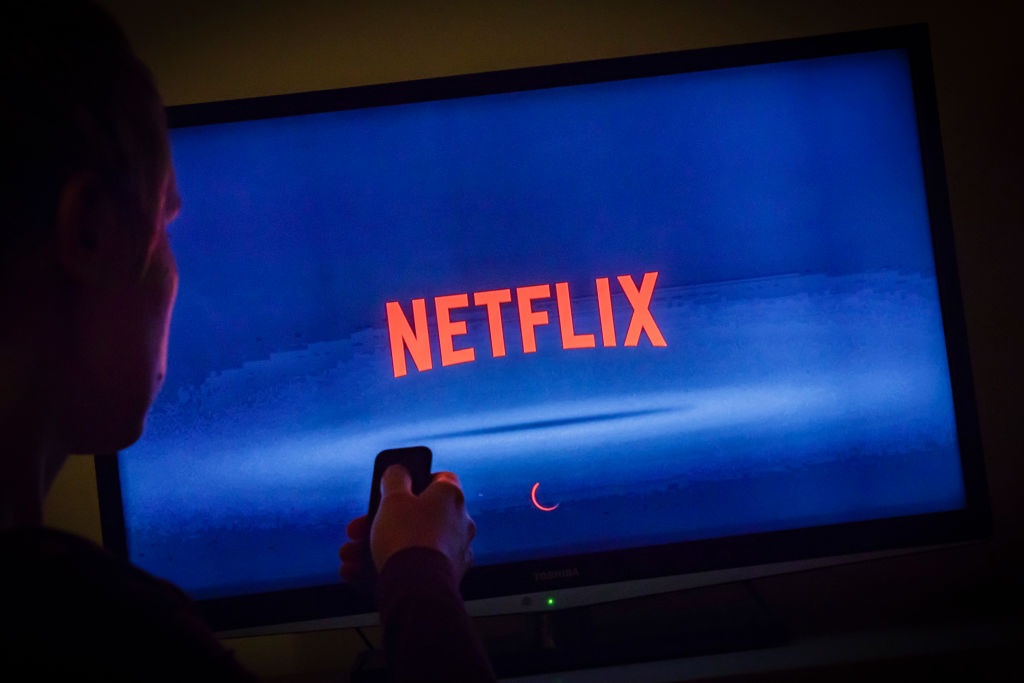Netflix Urged To Slow Streaming to Avoid Breaking the Internet
Users trapped at home by the Coronavirus pandemic are straining bandwidth everywhere.

Netflix needs to chill with the high-definition video streams.
That’s one way to phrase a request from the European Union (E.U.) that the streaming giant removes the hi-def video option for viewers. Why? To keep the internet from breaking under the weight of millions of newly-bored people suddenly stuck at home on Coronavirus self-quarantine and looking for something to binge. So many users at once could cause a total bandwidth collapse.
Netflix and Google (GOOGL) together account for nearly 25% of the data transmitted via the internet.
European Commissioner Thierry Breton, who is responsible for the EU internal market covering more than 450 million people, tweeted Wednesday evening that he had spoken with Netflix (NFLX) CEO Reed Hastings. Breton called on people and companies to “#SwitchtoStandard definition when HD is not necessary” in order to secure internet access for all.
Commissioner Breton also tweeted that he communicated with Reed Hastings, Netflix CEO.
Important phone conversation with @ReedHastings, CEO of @Netflix
To beat #COVID19, we #StayAtHome
Teleworking & streaming help a lot but infrastructures might be in strain.
To secure Internet access for all, let’s #SwitchToStandard definition when HD is not necessary.
— Thierry Breton (@ThierryBreton) March 18, 2020
“Important phone conversation with @ReedHastings, CEO of @Netflix,” Breton tweeted, “To beat #COVID19, we #StayAtHome(.) Teleworking & streaming help a lot but infrastructures might be in strain. To secure Internet access for all, let’s #SwitchToStandard definition when HD is not necessary.”
Breton stated Thursday that streaming services “have a joint responsibility to take steps to ensure the smooth functioning of the internet during the battle against the virus propagation.” It’s a truly unusual time, and it may call for unusual measures.
If there are global problems with internet access, however, it may not, in the end, be Netflix that shoulders the blame—it could be the virtual office.
Imperial College London technology professor Kin Leung told CNN that livestreaming something like a concert, performance, or even many streams of meeting participants all combine to create an even bigger strain on the web’s overall bandwidth.
Leung suggested people think about how necessary a livestream truly would be—if a recording is more feasible, people should do that. “Be a bit more conscious about the demand every one of us places on the internet,” Leung said, “that is a good step to help out and ease the overload.”
Basically, just as it is up to everyone to quarantine and take active measures aimed at avoiding the spread of COVID-19, it’s also up to us to use the internet responsibly.
After all, it’s never been a more necessary utility than it is today.
